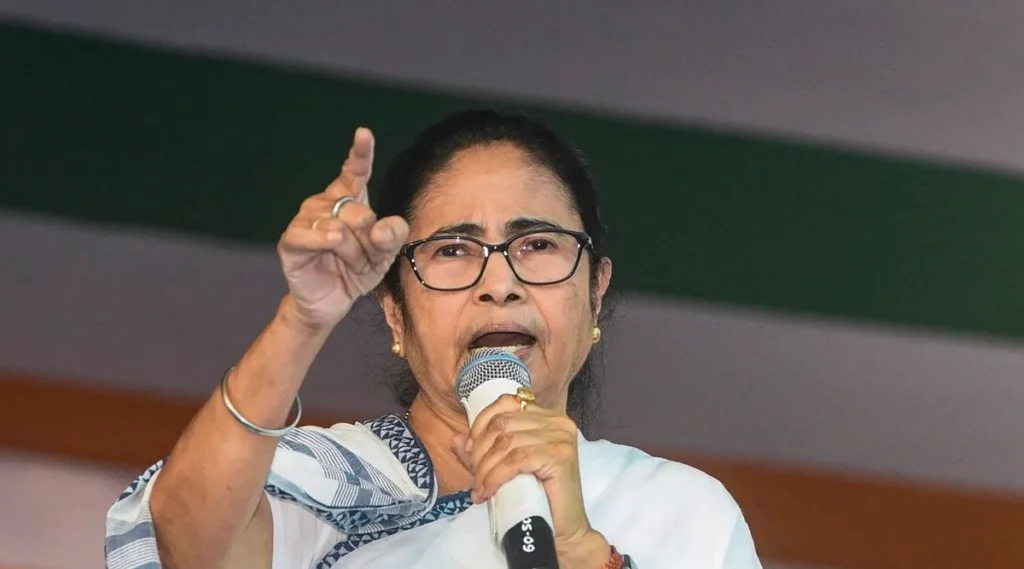Mamata Banerjee, the firebrand leader and Chief Minister of West Bengal, has vowed to scrap the controversial National Register of Citizens (NRC) from Assam if the opposition alliance is voted into power. This announcement comes amidst escalating debates and concerns over the NRC’s implementation and its implications for millions in the northeastern state. Banerjee’s pledge signals a potential shift in policy direction and underscores the contentious nature of the citizenship issue in India.
The NRC, introduced with the purported aim of identifying undocumented migrants residing in Assam, has been a subject of intense scrutiny and criticism since its inception. The process, marred by logistical challenges and allegations of bias, has led to widespread anxiety and disenchantment among the populace, particularly marginalized communities and religious minorities. Critics argue that the NRC has disproportionately affected vulnerable groups, rendering many stateless and vulnerable to state action.
Banerjee’s bold promise to revoke the NRC reflects her party’s stance on the issue and seeks to resonate with voters disillusioned by the incumbent government’s policies. By aligning herself with the concerns of Assamese residents and minority communities, Banerjee aims to galvanize support for the opposition alliance, presenting it as a viable alternative to address the grievances stemming from the NRC exercise.
The decision to annul the NRC, if implemented, would have profound implications for Assam’s socio-political landscape. It would signal a departure from the current administration’s approach and open avenues for dialogue and reconciliation with communities adversely affected by the citizenship verification process. Moreover, it could potentially alleviate the fears of mass displacement and statelessness that have haunted many in the region.
However, Banerjee’s pledge is not without its share of challenges and complexities. Scrapping the NRC would require a concerted effort involving legislative amendments and administrative reforms, which may encounter resistance from vested interests and bureaucratic hurdles. Moreover, it raises questions about the fate of those already excluded from the citizenship list and the process of determining their status and rights going forward.
Furthermore, Banerjee’s promise underscores the broader political dynamics at play in the run-up to elections. By capitalizing on the discontent surrounding the NRC, she seeks to consolidate her party’s support base and project herself as a champion of minority rights and regional aspirations. In doing so, she aims to challenge the hegemony of the ruling party and present a viable alternative vision for governance.
The fate of the NRC in Assam has broader implications for India’s democratic fabric and pluralistic ethos. The controversy surrounding its implementation reflects deeper fault lines within the polity, including questions of identity, citizenship, and belonging. Banerjee’s pledge to scrap the NRC, therefore, transcends regional politics and speaks to the larger struggle for inclusive democracy and social justice in the country.
As the electoral battle heats up in Assam and beyond, Mamata Banerjee’s promise to abolish the NRC emerges as a defining moment in India’s political landscape. It raises hopes for a more inclusive and compassionate approach towards citizenship issues, while also highlighting the imperative of upholding constitutional values and human rights. Whether Banerjee’s pledge translates into tangible action remains to be seen, but its significance in shaping the discourse around citizenship and identity cannot be understated.
In addition, Mamata Banerjee’s commitment to revoke the NRC from Assam if the opposition alliance assumes power underscores the complexity and urgency of addressing citizenship issues in India. Her pledge reflects a desire to rectify the injustices of the past and chart a more equitable path forward for marginalized communities. As the nation prepares for crucial electoral contests, the fate of the NRC looms large, carrying profound implications for the idea of India as a pluralistic and inclusive democracy.


